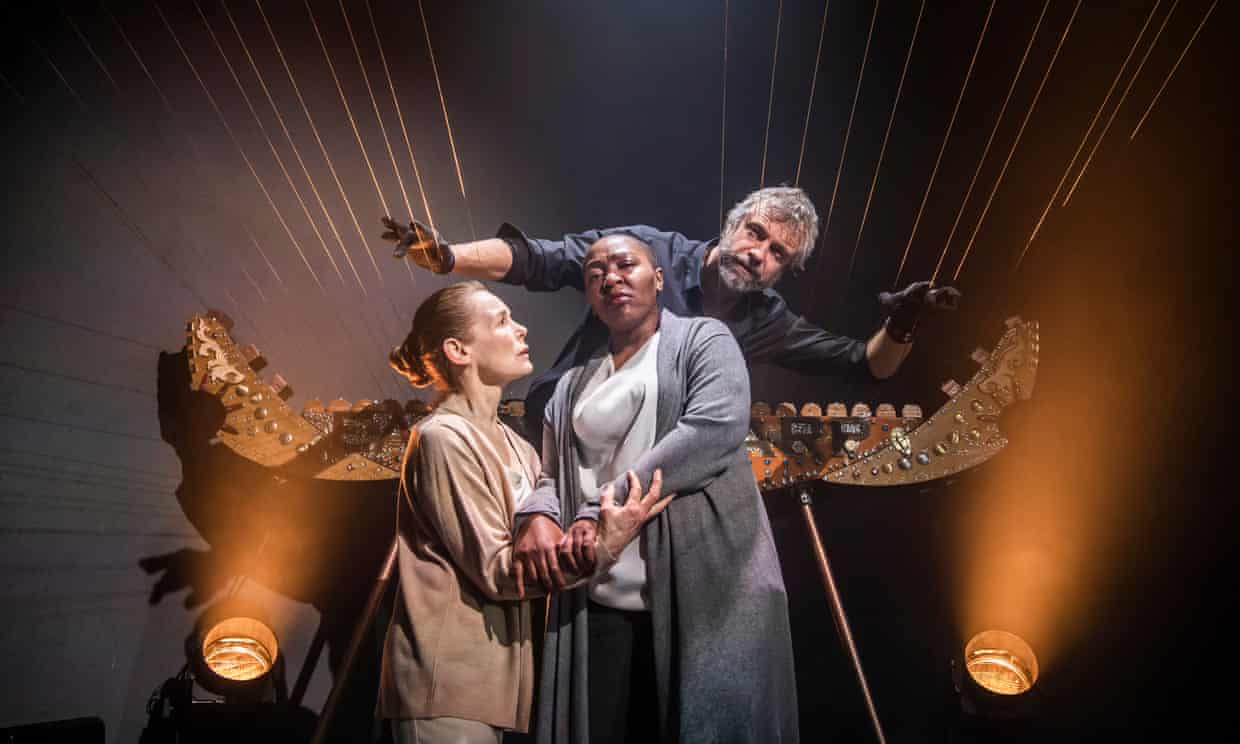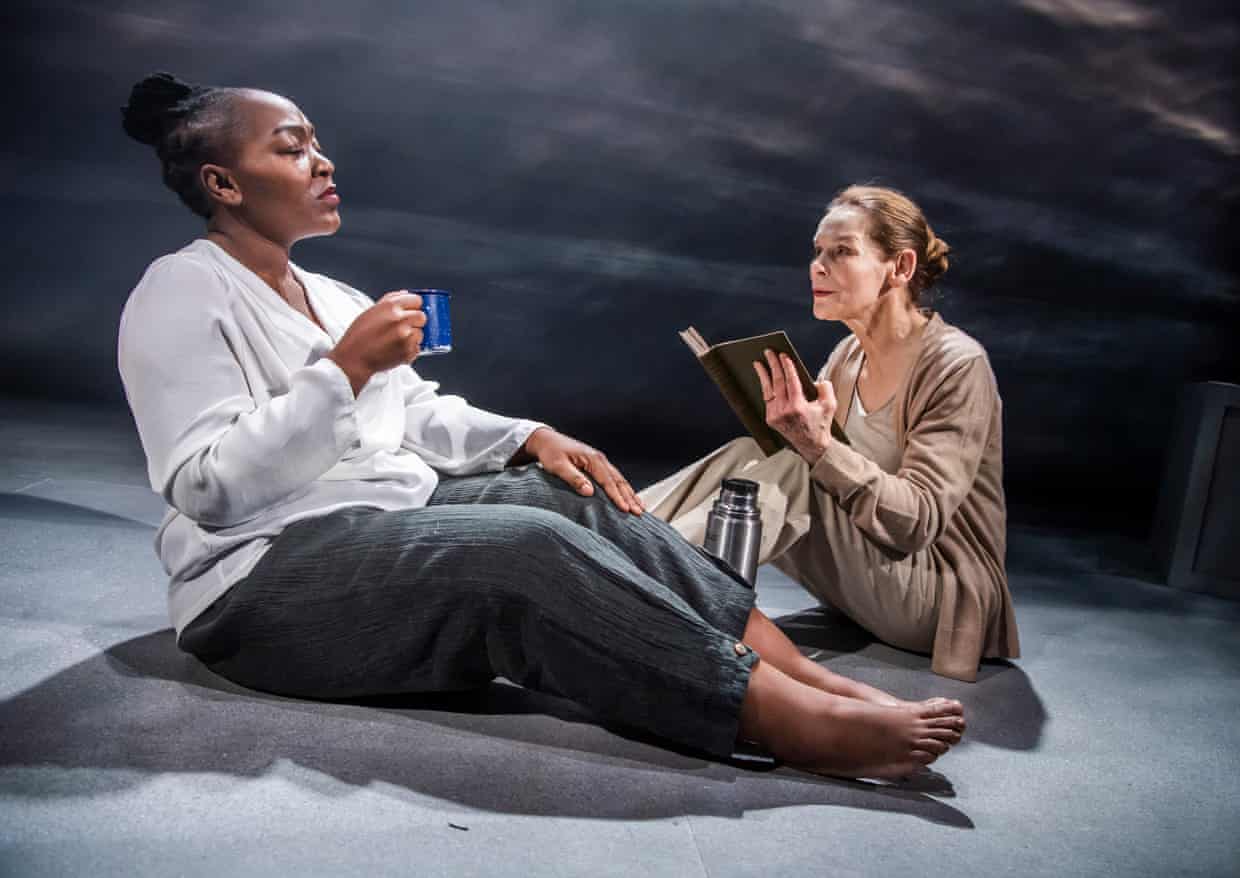
Theatre
Persona review – it’s Bergman, but without the intensity
Riverside Studios, London
Alice Krige’s commanding presence can’t ignite this stark adaptation, which suffers from needless narrator interjections
by Ryan GilbeyIngmar Bergman adaptations have provided a steady supply of theatre productions this century, from Trevor Nunn’s scalding Scenes from a Marriage to Fanny and Alexander at the Old Vic and a clammy three-hour double bill by Ivo van Hove of Persona and After the Rehearsal. A new interpretation of Persona – reopening the Riverside Studios in west London – has now tempted Alice Krige back to the stage after two decades. And no wonder: this influential 1966 psychodrama is both a cornerstone of arthouse cinema and the film that rescued its creator from the doldrums. Bergman was recovering in hospital from double pneumonia when he wrote the feverish screenplay about two women – one garrulous, the other silent – whose identities begin to merge.
This stark production by Krige’s husband, Paul Schoolman, introduces a narrator figure, played by Schoolman and effectively Bergman in all but name, who recites stage directions from the script and supplies needless interjections. There may be performers who would benefit from an ongoing director’s commentary (“Treachery, such treachery!” he cries after a moment of betrayal) but the calmly commanding Krige isn’t one of them.
She plays Alma, the nurse assigned to watch over the great actor Elizabet Vogler (Nobuhle Mngcwengi), who has been mute ever since briefly forgetting her lines on stage during Electra three months earlier. Carer and patient retire to a remote location – Filip Haglund’s video images show the view from Bergman’s island retreat of Faro, where the film was shot and where Schoolman researched and wrote the play in Bergman’s own study. As the nurse natters on, it becomes clear that the women are both haunted by the spectre of children, Alma revealing she had an abortion while Elizabet rips up a picture of her own son.

In the film, there were moments when Bergman made the celluloid appear to burn up in the projector, the screen fragmenting into disturbing subliminal images; it was as if the characters’ neuroses were tearing apart the very fabric of the film itself. Stage directions are a poor substitute (“Here the film should break down,” says the narrator gravely) but some atmospheric ground is gained by the use of an “earth harp”, played by William Close, its strings extending from an organ-like body in the corner of the stage and over the heads of the audience so that the sensation is rather like sitting inside an enormous guitar.
The plangent instrument captures some of the jangling anxiety of the text, as does Krige, whose extraordinary monologue about a defining sexual encounter ricochets between gleefulness and shame. Mngcwengi resorts too readily to haughtiness but she certainly has presence, and it’s bold of the production to overlook the performers’ physical dissimilarity when the film made so much of the close resemblance between Liv Ullmann and Bibi Andersson.
The original Persona always felt like a fusing of the sensibilities of Bergman and his lead actors, whereas the dominance here of the narrator turns Krige and Mngcwengi into his marionettes, which hardly seems on-message in a study of female identity. At its least effective the play has the sketchiness of a walkthrough for a more ambitious piece. A good example is the restaging of the scene in which Alma tries to force Elizabet to speak by threatening her with a pan of boiling water. That weapon is replaced here by a flask of lukewarm tea, which reduces the temperature of the action somewhat but does at least provide a decent metaphor for the general downgrading of intensity.
• At the Riverside Studios, London, until 23 February.